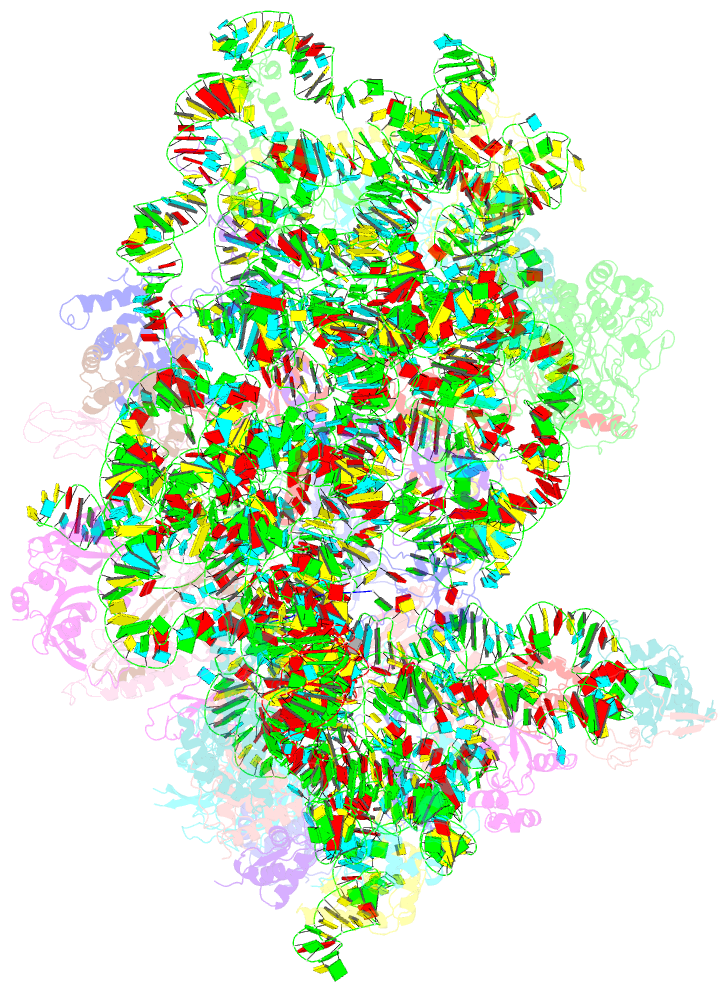Summary information and primary citation
- PDB-id
- 8p09; SNAP-derived features in text and JSON formats;
DNAproDB
- Class
- translation
- Method
- cryo-EM (3.3 Å)
- Summary
- 48s late-stage initiation complex with non methylated mrna
- Reference
- Guca E, Alarcon R, Palo MZ, Santos L, Alonso-Gil S, Davyt M, de Lima LHF, Boissier F, Das S, Zagrovic B, Puglisi JD, Hashem Y, Ignatova Z (2024): "N 6 -methyladenosine in 5' UTR does not promote translation initiation." Mol.Cell, 84, 584-595.e6. doi: 10.1016/j.molcel.2023.12.028.
- Abstract
- The most abundant N6-methyladenosine (m6A) modification on mRNAs is installed non-stoichiometrically across transcripts, with 5' untranslated regions (5' UTRs) being the least conductive. 5' UTRs are essential for translation initiation, yet the molecular mechanisms orchestrated by m6A remain poorly understood. Here, we combined structural, biochemical, and single-molecule approaches and show that at the most common position, a single m6A does not affect translation yields, the kinetics of translation initiation complex assembly, or start codon recognition both under permissive growth and following exposure to oxidative stress. Cryoelectron microscopy (cryo-EM) structures of the late preinitiation complex reveal that m6A purine ring established stacking interactions with an arginine side chain of the initiation factor eIF2α, although with only a marginal energy contribution, as estimated computationally. These findings provide molecular insights into m6A interactions with the initiation complex and suggest that the subtle stabilization is unlikely to affect the translation dynamics under homeostatic conditions or stress.





